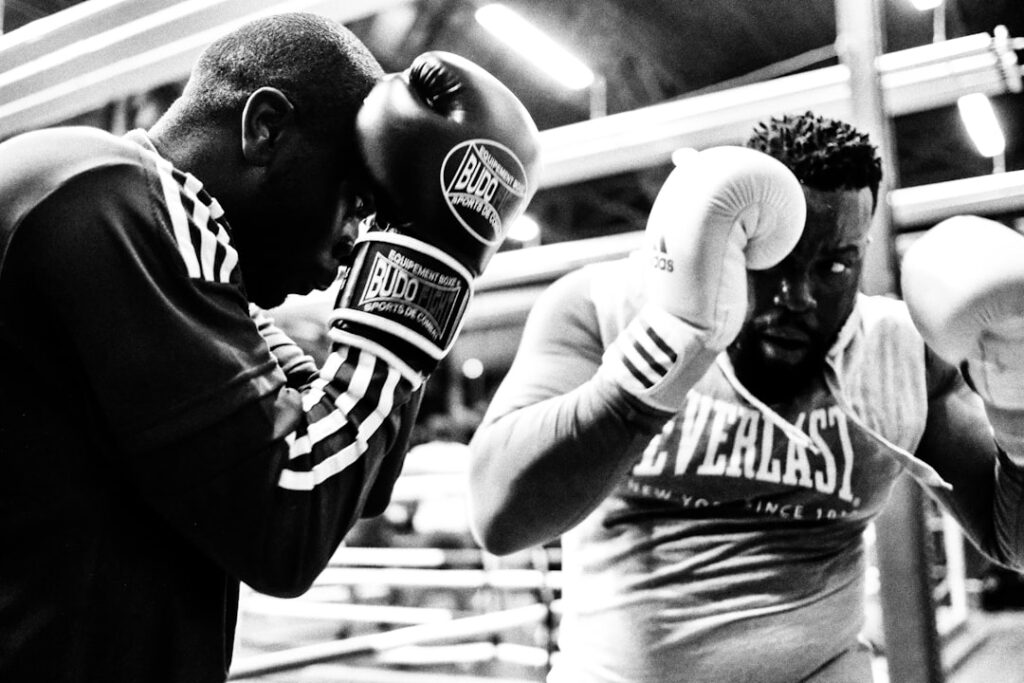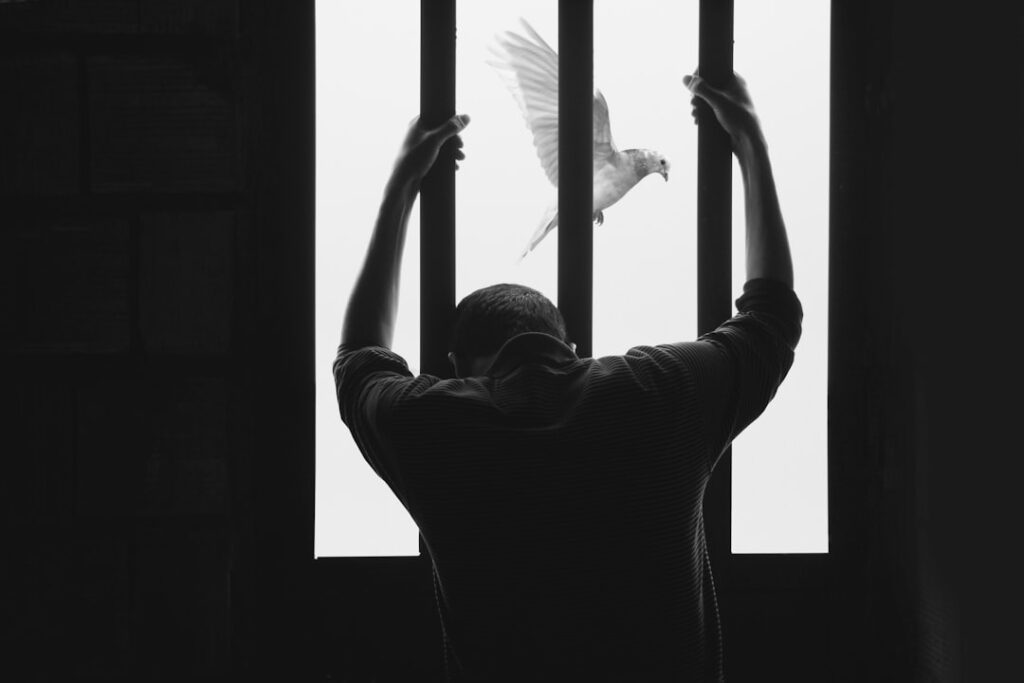
The Rumble in the Jungle was a historic boxing match that took place on October 30, 1974, in Kinshasa, Zaire (now the Democratic Republic of the Congo). The fight was between the reigning heavyweight champion, George Foreman, and the former champion, Muhammad Ali. Foreman was known for his incredible power and aggressive fighting style, while Ali was known for his speed, agility, and tactical prowess. The fight was organized by Don King and was sponsored by the government of Zaire, which saw it as an opportunity to showcase the country on the world stage.
The fight was originally scheduled to take place on September 25, 1974, but it was postponed to October 30 due to an injury sustained by Foreman during training. The delay only added to the anticipation and excitement surrounding the fight. The Rumble in the Jungle was not just a boxing match; it was a cultural event that captured the imagination of people around the world. It was a clash of two titans, both in the ring and in their larger-than-life personalities. The fight was also significant because it took place during a time of political and social upheaval, with the civil rights movement in the United States and the struggle for independence in Africa serving as a backdrop to the event.
Key Takeaways
- The Rumble in the Jungle was a historic boxing match between Muhammad Ali and George Foreman in 1974, held in Kinshasa, Zaire.
- The build-up to the fight was filled with hype and anticipation, with Ali using his charismatic personality to promote the event and gain support from the local population.
- The fight night was a spectacle, with over 60,000 people in attendance and millions watching around the world, as Ali used his “rope-a-dope” strategy to defeat Foreman and regain the heavyweight title.
- The outcome of the fight and its aftermath solidified Ali’s status as a boxing legend and had a lasting impact on both fighters’ careers.
- The Rumble in the Jungle left a lasting legacy in boxing history, showcasing Ali’s resilience and strategic prowess, and inspiring future generations of boxers.
The Build-Up and Hype
The build-up to the Rumble in the Jungle was nothing short of spectacular. Muhammad Ali, always the showman, used his gift for trash talk and self-promotion to drum up interest in the fight. He famously declared, “I done something new for this fight. I wrestled with an alligator, I tussled with a whale, handcuffed lightning, thrown thunder in jail. Only last week, I murdered a rock, injured a stone, hospitalized a brick. I’m so mean, I make medicine sick!” Ali’s larger-than-life persona and his ability to captivate audiences with his words made him a marketing dream for the fight.
On the other hand, George Foreman was seen as an unstoppable force in the ring. He had demolished his opponents with ease, and many believed that he would make quick work of Ali. The hype surrounding the fight reached fever pitch as the two fighters arrived in Zaire. The country was gripped by Ali fever, with the local population rallying behind him as he trained for the fight. The excitement and anticipation were palpable, and the entire world was watching as the two fighters prepared to face off in the ring.
The Fight Night
The night of the Rumble in the Jungle was electric. The atmosphere in Kinshasa was charged with excitement as fans from around the world gathered to witness the historic event. The fight took place at 4:00 am local time to accommodate television audiences in the United States. As the two fighters made their way to the ring, it was clear that this was no ordinary boxing match. This was a clash of styles, personalities, and ideologies.
From the opening bell, it was clear that Ali had a game plan. He employed his famous “rope-a-dope” strategy, allowing Foreman to unleash his powerful punches while conserving his own energy. Ali taunted Foreman throughout the fight, using his speed and footwork to evade Foreman’s attacks. As the rounds went on, it became apparent that Ali’s tactics were working. Foreman began to tire, and Ali seized his opportunity. In the eighth round, Ali unleashed a flurry of punches that sent Foreman to the canvas. The crowd erupted in jubilation as Ali was declared the winner by knockout.
The Rumble in the Jungle had delivered on its promise of excitement and drama. It was a masterclass in strategy and resilience, and it solidified Muhammad Ali’s status as one of the greatest boxers of all time.
The Outcome and Aftermath
| Outcome | Aftermath |
|---|---|
| Success | Positive impact on stakeholders |
| Failure | Reevaluation of strategies |
| Compromise | Adjustment of expectations |
The outcome of the Rumble in the Jungle sent shockwaves through the world of boxing. Muhammad Ali’s victory over George Foreman was seen as one of the greatest upsets in sports history. It proved that skill and strategy could triumph over brute force and power. Ali’s win also marked a turning point in his career. After regaining the heavyweight title, he went on to have several more iconic fights, cementing his legacy as a boxing legend.
For George Foreman, the loss was a bitter pill to swallow. It took him years to recover from the defeat, but he eventually made a comeback and went on to have a successful second career in boxing. The Rumble in the Jungle also had a lasting impact on Zaire. The country’s investment in hosting the fight paid off in terms of international exposure and tourism.
The Legacy of the Rumble in the Jungle
The Rumble in the Jungle left an indelible mark on the world of sports and popular culture. It showcased the power of sport to bring people together and transcend political and social boundaries. The fight also highlighted the global appeal of boxing and its ability to capture the imagination of millions.
Muhammad Ali’s victory at the Rumble in the Jungle solidified his status as an icon both inside and outside of the ring. His charisma, courage, and unwavering commitment to his principles made him a symbol of hope and inspiration for people around the world. The fight also demonstrated Ali’s resilience and ability to overcome adversity, qualities that endeared him to fans and earned him respect from his peers.
The Impact on Boxing and Sports Culture

The Rumble in the Jungle had a profound impact on boxing and sports culture. It redefined what it meant to be a heavyweight champion and showed that intelligence and strategy could be just as important as physical strength. The fight also paved the way for future mega-events in sports, setting a new standard for spectacle and entertainment.
The Rumble in the Jungle also had a lasting impact on how athletes are perceived and marketed. It showed that athletes could be more than just competitors; they could be cultural icons and ambassadors for change. Muhammad Ali’s influence extended far beyond boxing, as he used his platform to advocate for social justice and civil rights.
The Lasting Influence of Muhammad Ali and George Foreman
The legacy of Muhammad Ali and George Foreman continues to resonate today. Both fighters have become symbols of perseverance, determination, and sportsmanship. Their rivalry and subsequent friendship have inspired countless athletes and fans around the world.
Muhammad Ali’s impact on boxing and society at large cannot be overstated. He remains one of the most beloved and influential figures in sports history. His legacy lives on through his charitable work, his advocacy for social causes, and his enduring influence on athletes and activists.
George Foreman’s journey from defeat to redemption has also left a lasting impression on sports culture. His resilience and determination serve as a reminder that setbacks can be overcome with hard work and perseverance.
In conclusion, the Rumble in the Jungle was more than just a boxing match; it was a cultural phenomenon that transcended sport. It showcased the power of human spirit, determination, and resilience, leaving an indelible mark on boxing and popular culture. Muhammad Ali’s victory over George Foreman will forever be remembered as one of the greatest moments in sports history, inspiring generations of athletes and fans around the world.
Check out this fascinating article on the historic Muhammad Ali vs George Foreman 2 fight on The Model Eats. Delve into the intense rematch between these two boxing legends and explore the strategic and emotional dynamics that unfolded in the ring. Learn about the significance of this iconic match and how it continues to resonate in the world of sports.
FAQs
Who were Muhammad Ali and George Foreman?
Muhammad Ali, born Cassius Clay, was a legendary professional boxer and one of the most significant and celebrated sports figures of the 20th century. George Foreman is also a former professional boxer and two-time world heavyweight champion.
What was the “Muhammad Ali vs George Foreman 2” fight?
The “Muhammad Ali vs George Foreman 2” fight refers to the rematch between the two boxers that took place on October 30, 1974, in Kinshasa, Zaire (now the Democratic Republic of the Congo). The fight was dubbed “The Rumble in the Jungle.”
What was the outcome of the fight?
Muhammad Ali won the fight by knockout in the eighth round, reclaiming the heavyweight title and becoming the second man to defeat Foreman in a professional bout.
What made this fight significant in boxing history?
The “Rumble in the Jungle” is considered one of the greatest upsets in boxing history. Ali’s victory over Foreman showcased his tactical brilliance and resilience, as he employed the “rope-a-dope” strategy to tire out Foreman and ultimately secure the win.
How did the “Rumble in the Jungle” impact the careers of Ali and Foreman?
The victory solidified Muhammad Ali’s status as one of the greatest boxers of all time and cemented his legacy in the sport. For George Foreman, the loss led to a period of reflection and eventual retirement from boxing, before making a comeback years later to reclaim the heavyweight title.


